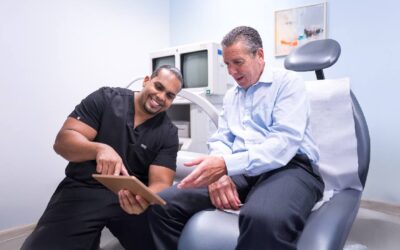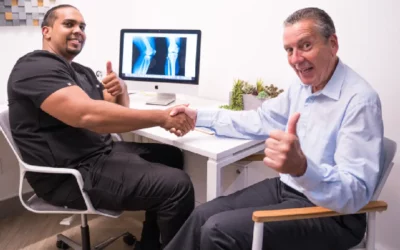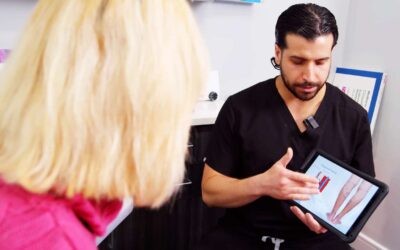What Type of Doctor Treats Varicose Veins?
What Type of Doctor Treats Varicose Veins?
Phlebology is the branch of medicine dealing with vascular health and diseases, such as spider veins, varicose veins, and chronic venous insufficiency. As such, the medical name for a doctor specializing in varicose vein treatment is “phlebologist,” though they’re more commonly called vein doctors or vein specialists. Phlebologists can come from numerous medical backgrounds, such as cardiology, dermatology, anesthesiology, or cosmetic surgery. However, they must have specialized training in the diagnosis and treatment of varicose veins and chronic venous insufficiency.
While vein doctors can come from numerous medical backgrounds, you should look for vein specialists who exclusively focus on vein treatments. They should ideally serve as vein doctors at established, state-of-the-art vein treatment clinics in New Jersey. You must also ensure that your vein doctor specializes in the latest minimally invasive spider vein and varicose vein treatments, such as radiofrequency ablation, endovenous laser ablation, and sclerotherapy. You can find our talented board-certified vein doctors in Paramus, Clifton, or Woodland Park, NJ.
However, there are a few more doctors like dermatologists, general surgeons, or even plastic surgeons who can also help you with the treatment of your varicose and spider veins. Further, the interventional radiologists and vascular surgeons have complete additional training and knowledge which is the better choice for diagnosis and treatments even in certain severe cases of veins.
How Much Does it Cost to fix Varicose Veins?
The cost of minimally invasive varicose vein treatments can range in thousands of dollars. The cost varies from one individual to the next and from one vein treatment to the next. That’s because varicose veins can be treated using multiple techniques, such as radiofrequency ablation, endovenous laser ablation, ambulatory phlebectomy, and sclerotherapy. Your varicose vein treatment cost will also depend on whether you have underlying chronic venous insufficiency.
Varicose vein treatments are often covered by medical insurance, especially if you have chronic venous insufficiency. However, you can only receive insurance coverage if your vein treatment is deemed medically necessary, i.e., if you have underlying vein disease. As such, your final varicose vein treatment cost will also depend on whether you’re eligible for insurance coverage, your insurance plan, and the specific vein treatment.
Our state-of-the-art spider vein and varicose vein treatment clinics in New Jersey provide free insurance verification. We provide a complete breakdown of your treatment cost with or without insurance coverage before your treatment.
Can a Dermatologist get rid of Varicose Veins?
Dermatologists often provide vein treatments in their medical centers and medical spas, but they usually focus on cosmetic relief. They may provide laser therapy or sclerotherapy for spider veins and superficial varicose veins, i.e., the visible symptoms on your skin’s surface. As such, they might improve the appearance of your legs, but you may have a high risk of vein disease recurrence because they might not address underlying chronic venous insufficiency, the root cause of most vein problems.
As such, you should only consult dedicated vein doctors or phlebologists specializing in the diagnosis and treatment of vein disease. Even though spider veins and varicose veins seem like skin problems, they’re actually caused by vascular problems, so they should be treated by vein specialists. When looking for vein doctors for your varicose vein treatments, you must ensure they perform ultrasound diagnostic tests to provide minimally invasive vein treatments.
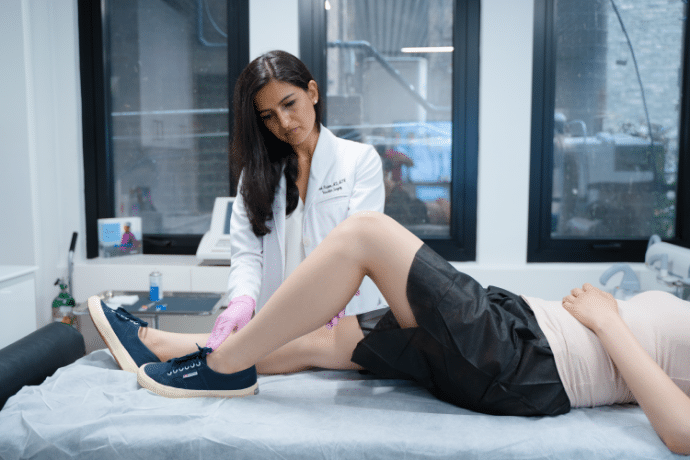
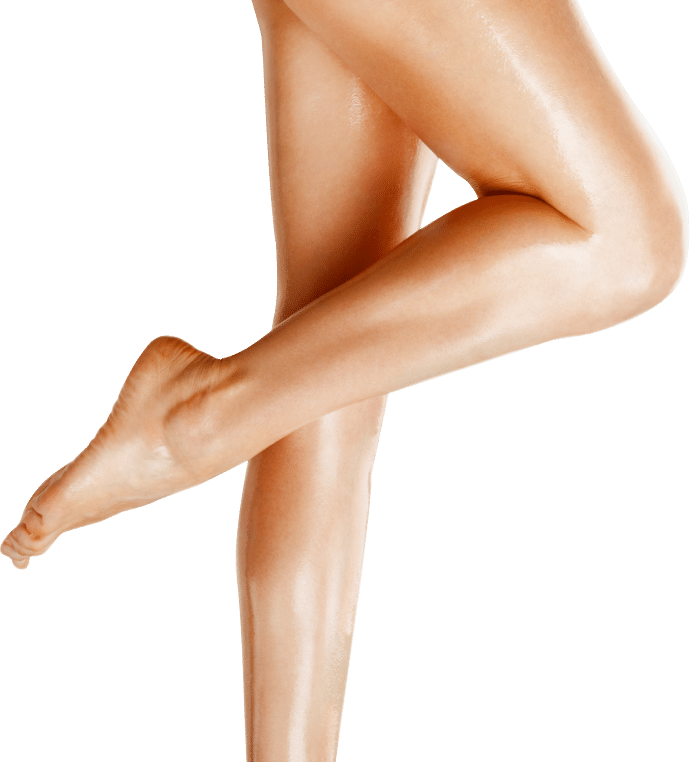
BOOK AN APPOINTMENT
Do you have any symptoms? Consult now with one of the Best Vein Specialist in New Jersey
Can you get rid of Varicose Veins Without Surgery?
You can and should opt for non-surgical treatments for varicose veins. Varicose vein surgeries, such as vein ligation and vein stripping, are considered obsolete because they involve multiple excisions, hospitalization, downtime, and a high risk of infections or deep vein thrombosis. Comparatively, minimally invasive varicose vein treatments are safe, effective, and conclude within an hour with no downtime. The best minimally invasive vein treatments include radiofrequency ablation, endovenous laser ablation, venaseal, and sclerotherapy.
Does Drinking Water Help Varicose Veins?
Drinking water improves blood circulation and strengthens your vein valves, which, in turn, minimizes the risk of vein disease and varicose veins. However, drinking water won’t treat existing varicose veins because it won’t fix the damaged vein valves responsible for poor blood circulation. If you have varicose veins, you must contact a reliable vein doctor to explore your minimally invasive vein treatment options. The vein doctor will recommend treatments to close or remove the diseased saphenous vein, thereby restoring effective blood circulation to the heart.
What Exercise is Best for Varicose Veins?
Running, swimming, and cycling are best for varicose veins because they improve blood circulation and engage your calf muscles, pushing some of the accumulated blood towards the heart. As such, these exercises can temporarily alleviate the discomfort caused by varicose veins, but they don’t treat vein disease or varicose veins. The only way to treat varicose veins is through minimally invasive spider vein and varicose vein treatments.
When Should I be Concerned About Varicose Veins?
You should always be concerned about varicose veins, i.e., blood vessels that bulge from the skin’s surface due to excessive blood accumulation. The presence of varicose veins indicates advanced chronic venous insufficiency, putting you at risk of profuse bleeding, skin discoloration, skin disease, leg ulcers, and deep vein thrombosis. As such, if you have varicose veins, you must contact a vein specialist in NJ as soon as possible.
Can you Reverse Varicose Veins Naturally?
You can alleviate the discomfort caused by varicose veins by exercising regularly, walking frequently, elevating your legs above your heart’s level, and wearing compression stockings. These methods will improve blood circulation and force accumulated blood to flow towards your heart. However, these techniques provide temporary relief — there’s no natural method to reverse varicose veins permanently. You need minimally invasive varicose vein treatments.
What are the Treatment Options for Varicose Veins?
Radiofrequency ablation, endovenous laser ablation, and venaseal are some of the most effective minimally invasive vein treatments. These procedures involve using thermal energy, laser energy, or medical adhesives to destroy the diseased saphenous vein responsible for your vein problems. After the primary vein treatment, the vein doctor may use ambulatory phlebectomy to extract the superficial varicose veins from the skin’s surface. Please contact your vein doctors in New Jersey to explore your treatment options.
NJ Vein Doctors
Meet our team of New Jersey Vein Treatment Specialists
Vein Treatments are covered by most major medical insurances, including Medicare. Call us today to verify your insurance for FREE >
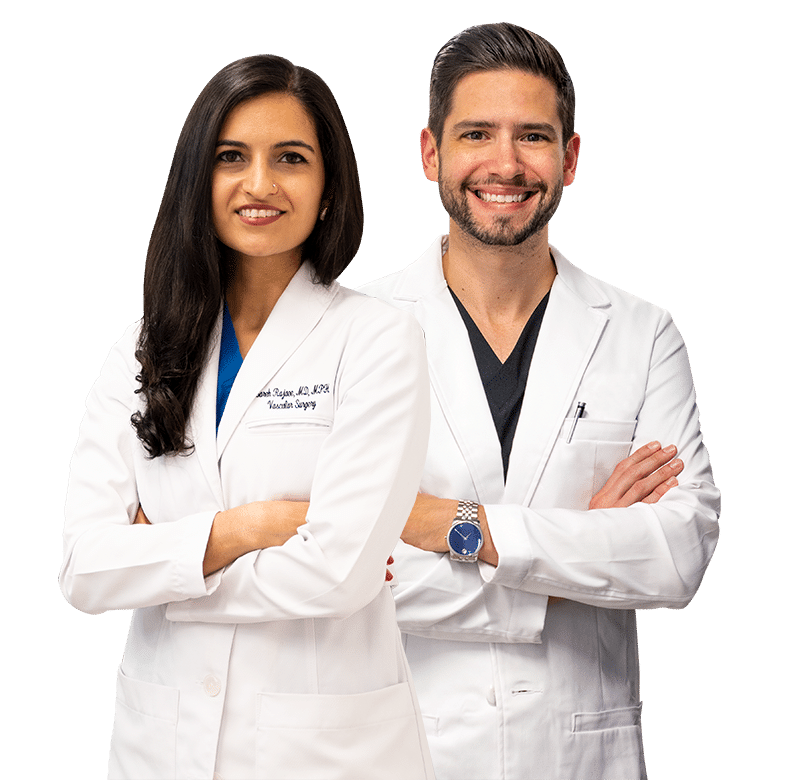
Meet our Team of Top Vein Specialists in New Jersey
Contact us
CALL US
Speak instantly with one of our team members; they will answer any questions you may have regarding insurance coverage, booking an appointment and our vein treatment locations. (973) 946-8082
BOOK APPOINTMENT
Visit our Book Appointment page and instantly request an appointment at the New Jersey vein center. We offer Free Insurance Verification before your appointment.
